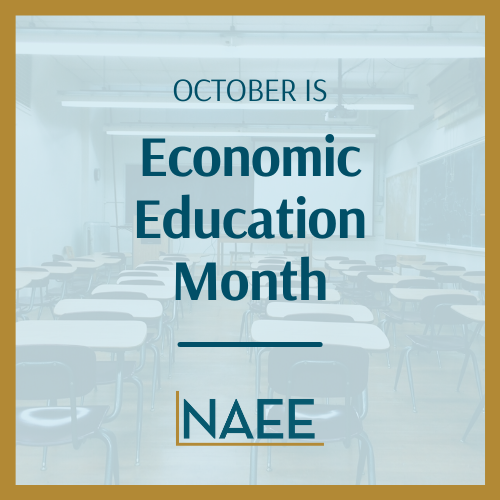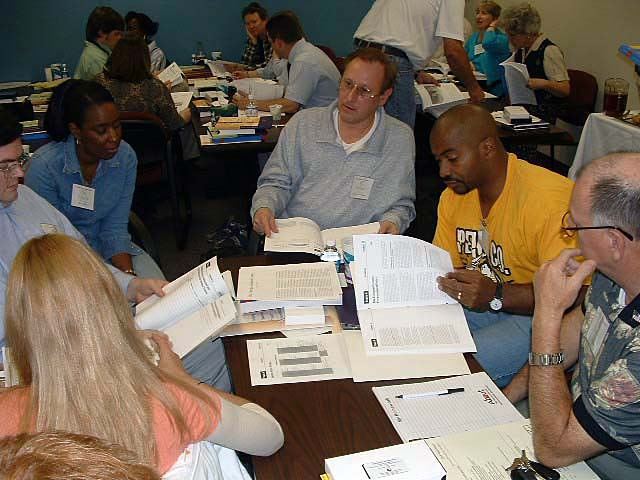| #EconEdMonth October is officially National Economic Education Month! The observance promotes the importance of teaching economics in our schools. |
WHY?
| Economics is all around us. It teaches us that scarcity forces everyone to make choices, and our choices come with costs. Students with a clear understanding of basic economic principles will be equipped to make educated decisions. By studying how our economy works, young people can also learn how to make efficient choices in managing their own scarce resources. Economic education involves teaching children decision-making skills they can apply to all areas of their lives. These same skills are necessary to make informed choices as engaged citizens. Preparing our children for success in life involves teaching them critical decision-making skills when they are young. Providing teachers with innovative and meaningful educational opportunities is one of the most important things we can do to ensure prosperity in our students' lives and in our communities. Economic education must be established and maintained in our K-12 schools. Even young children are capable of learning basic economic concepts that help them understand their economic world. Economic education in our schools depends on K-12 educators being equipped with high quality training and resources to ensure students have equitable access to classroom experiences that develop the skills necessary to make informed choices as individuals and members of their community. |
October is Economic Education Month #EconEdMonth |
Throughout October, educators, families, and community leaders can promote economic education in many ways:
| HOW?
|
CONCEPTS |





